

Moody's Investors Service has maintained a "stable" outlook for the Chinese banking system over the next 12 to 18 months, but has given asset quality, profitability, and efficiency a "negative" outlook, analysts at the rating agency said on Thursday.
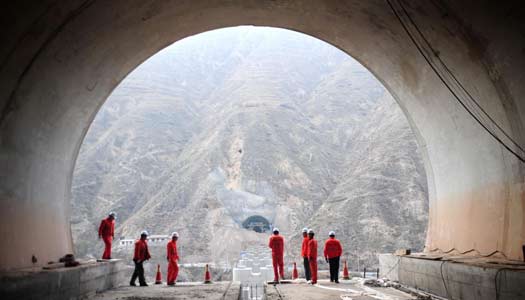 Infrastructure investment will regain pace next year in the wake of the country's economic transformation and the new government assuming its post, Moody's Investors Service said on Thursday.
Infrastructure investment will regain pace next year in the wake of the country's economic transformation and the new government assuming its post, Moody's Investors Service said on Thursday.
Ivan Chung, a senior analyst with Moody's who specializes in infrastructure finance, said that China's demand for infrastructure investment will remain robust in the fourth quarter and next year, with economic growth back on track. Growth of accumulated fixed-asset investment was 20.5 percent in the first nine months of the year, compared with 24.9 percent in the same period last year.
China is looking at ways to encourage domestic manufacturers to expand overseas networks to boost shipments and promote branding amid a gloomy outlook for exports amid falling global demand, a senior commerce official said on Thursday.

Sandvik AB's new global headquarters is located in Stockholm's World Trade Center - a modern complex of the sort seen in every modern city, such as New York and Shanghai. It sits alongside the Swedish capital's Central Railway Station.
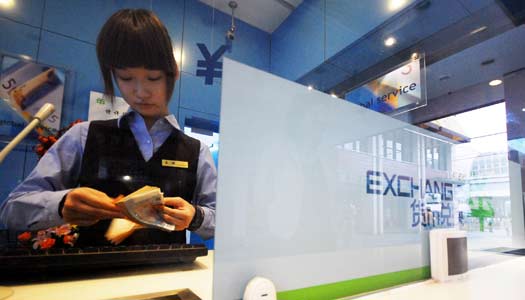 China will clear the way for foreign investors' capital to flow in and out of the country more easily by waiving and simplifying regulations, the State Administration of Foreign Exchange, or SAFE, said on Wednesday.
China will clear the way for foreign investors' capital to flow in and out of the country more easily by waiving and simplifying regulations, the State Administration of Foreign Exchange, or SAFE, said on Wednesday.
In a statement published on its website, SAFE said that there's no evidence to suggest that the nation is seeing pressure from capital inflows, although the yuan has strengthened in recent weeks, mainly driven by increasing optimism about China's economic outlook.
 For years, the abiding view of China has been of a workshop powered by waves of young migrants able to out-compete workers elsewhere in the world because of their low wages. This image is becoming increasingly wide of the mark.
For years, the abiding view of China has been of a workshop powered by waves of young migrants able to out-compete workers elsewhere in the world because of their low wages. This image is becoming increasingly wide of the mark.
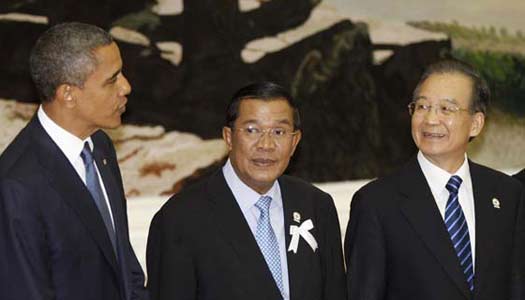 China will continue to be an important engine for the regional and world economies, said Premier Wen, referring to the Chinese economy as "stable".
China will continue to be an important engine for the regional and world economies, said Premier Wen, referring to the Chinese economy as "stable".
Wen made the remarks at the 7th East Asia Summit gathering leaders of the 10 members of the Association of Southeast Asian Nations and world economic powers Australia, India, Japan, New Zealand, South Korea, Russia and the United States.
 Thailand seeks to lure more Chinese visitors
Thailand seeks to lure more Chinese visitors
 Regional tensions hinder Northeast Asia investment
Regional tensions hinder Northeast Asia investment
The enhanced certainty of the global economy for 2013 will bring a more easing monetary environment and a brighter future for China's economy in the year ahead.
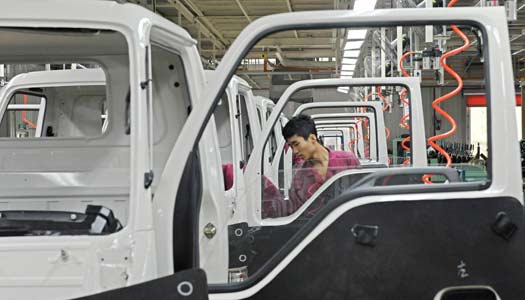 According to a survey conducted by the Chinese Entrepreneur Survey System, Chinese business people's top concerns are a lack of overseas demand, excess capacity, and financing difficulties faced by small and medium-sized enterprises.
According to a survey conducted by the Chinese Entrepreneur Survey System, Chinese business people's top concerns are a lack of overseas demand, excess capacity, and financing difficulties faced by small and medium-sized enterprises.
However, they remain cautiously optimistic about next year, expecting a rebound in new orders, reduced costs, improved earnings, a moderate rise in exports, and increased employment and investment..
According to the latest figures, released over the past month individually by local statistics bureaus, 26 out of 28 regions said that per capita disposable income registered faster growth than GDP growth in the first three quarters of the year.
 Between June 2011 and 2012, China's Internet population reached 538 million, of which some 194 million had shopped online. Online retail sales in China have soared in recent years and are expected to hit $360 billion by 2015 - up from about $121 billion in 2011 - according to The Boston Consulting Group.
Between June 2011 and 2012, China's Internet population reached 538 million, of which some 194 million had shopped online. Online retail sales in China have soared in recent years and are expected to hit $360 billion by 2015 - up from about $121 billion in 2011 - according to The Boston Consulting Group.
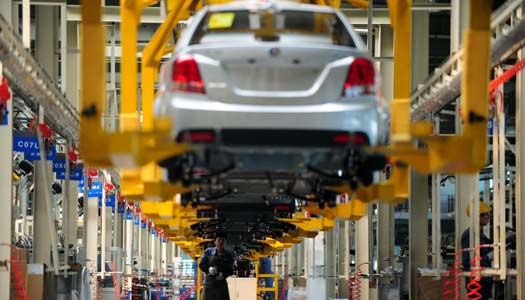 As China is striving to boost domestic demand to save the economy from recession, Lanzhou New Zone, a newly approved State-level economic development area in Northwest China's Gansu province, is being constructed to become what local investors say will be "a golden opportunity that no one wants to miss".
As China is striving to boost domestic demand to save the economy from recession, Lanzhou New Zone, a newly approved State-level economic development area in Northwest China's Gansu province, is being constructed to become what local investors say will be "a golden opportunity that no one wants to miss".
Previous approvals include the Pudong New Zone in Shanghai and Binhai New Zone in Tianjin. Both got the nod from central government in the 1990s.